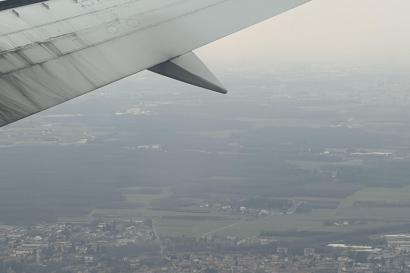I've grown to appreciate solitude over the years. Solitude, mind you, is not synonymous with loneliness. In fact, I'm never lonely, but I'm often in solitude. Solitude is an intentional state of being by oneself, whereas loneliness is a state of having no one around or there for support. Anyways, solitude is definitely something I have grown into. Much like the taste of natto or the texture of sashimi, solitude can be an acquired taste. I, however, much like most other things, have grown to like it with eagerness.
Throughout university, I've learned much and grown immensely, and studying abroad has done nothing short of augmenting both of these things. Since coming to Japan, I have definitely seen recognizable changes in myself in the ways I think and see the world. I've always thought of myself as a wise and mature person, but I've outdone myself even now (humble brag, oops). Solitude has allowed me these things; it has given me the time and space to tend to myself and to care for my own existence. Solitude is a powerful thing when understood and used well. By momentarily putting my hectic life in New York on hiatus for a few months and embarking on an experience seven thousand miles away, I'm surely in solitude from the things I've come to find familiar. I'm an extremist, though, so I go the extra mile to put myself in situations of solitude even here in Japan without new friends or people I've come to meet. I think it's liberating, in a way, to be free and with oneself far removed from anyone or anything you know well, just existing, thinking, and growing.
I'm not saying that I go out of my way to isolate myself all the time. Quite the opposite, actually, as I live off social interactions. Sometimes, though, I just need to be alone, to take time for myself, to check in with myself and ask myself how I am or how I'm doing. Introspection and self-care have been vital parts of my life routine that have kept me in check for a while now. The ability to do so abroad is equally if not more important because it contextualizes all the experiences had and helps me understand a bit more about myself. Sometimes I will just walk with no intentions for a couple of hours through my neighborhood in Nishi-Chiba or walk through the streets of Tokyo with no headphones in so I can just absorb the environment around me, think, and subsequently reflect. It's all a part of being and growing.
We need to be alone sometimes. In moments of solitude, we can sometimes grow the most. I can't rely on others to live for me or to necessarily make me a better person. They can help, for sure, but I am the one who needs to put in effort, to reflect on things, and to commit to actions in order to actually grow. Therefore, I need to be able to think, to realize, and to have the space to improve. Solitude, to me, isn't sad or pathetic. In fact, I think it's humbling and tranquil. Solitude is something we all need if we are to grow, if we are to learn, and if we are to be honest and true in our daily lives and interactions with one another. All these things start once we know ourselves, and to do that, we have to be able to be by ourselves and learn the beauty and comfort of doing that. If we are to know others, we must know ourselves. Solitude is controlled loneliness; it is a state of precision. In solitude, we are never truly alone because if we know and love ourselves, we don't necessarily always need anyone else.
Studying and living abroad is eye-opening, duh. There are challenges that come with it, much like anything else we do. If one is to truly grow from their time abroad and make their experiences count, one must take some time to just reflect. Reflection requires solitude. Much like meditation, solitude is a state in which we let go of outer stimuli and focus on ourselves and our own being. To do so is self-care, self-love, and self-awareness. Taking time to be in solitude is grounding, especially when being abroad in new contexts surrounded by new people and things can be vastly overwhelming and overstimulating. Solitude allows for decompression and digestion. It allows for wholesomeness and perhaps even more satisfaction in the end. Personally, I'm a big fan of solitude. I used to hate being alone. I thought I always needed to be around someone or to be in communication with someone every waking moment of my life. I learned that people won't always be there for you and they will let you down. Others might not always be able to care for you or help you grow, but you can and will. I learned the hard way how to love solitude. Now, I couldn't imagine life without me time-- time for reflection, scenic walks, aimless walking, momentary thought trains, etc. It's fun, it's nurturing, and it's humanizing. Try it sometime.

Alex Nguyen
<p>Hi, I'm Alex. I'm a junior at Columbia University majoring in Urban Studies and dabbling in other areas of interest like race & ethnicity studies. Outside of school, I like to eat, cook, take pictures, shop, have long conversations, and travel. Food, fashion, culture, literature, and music are all things I love. Black and gold are my favorite colors. Having lived in New York City for two years now, I feel quite at home. However, living in Japan is something I have wanted to do all my life, so I'm quite excited to finally live out that dream. From the local culture to the food to the fashion, I'm pumped to engage with it all during my semester abroad.</p>







